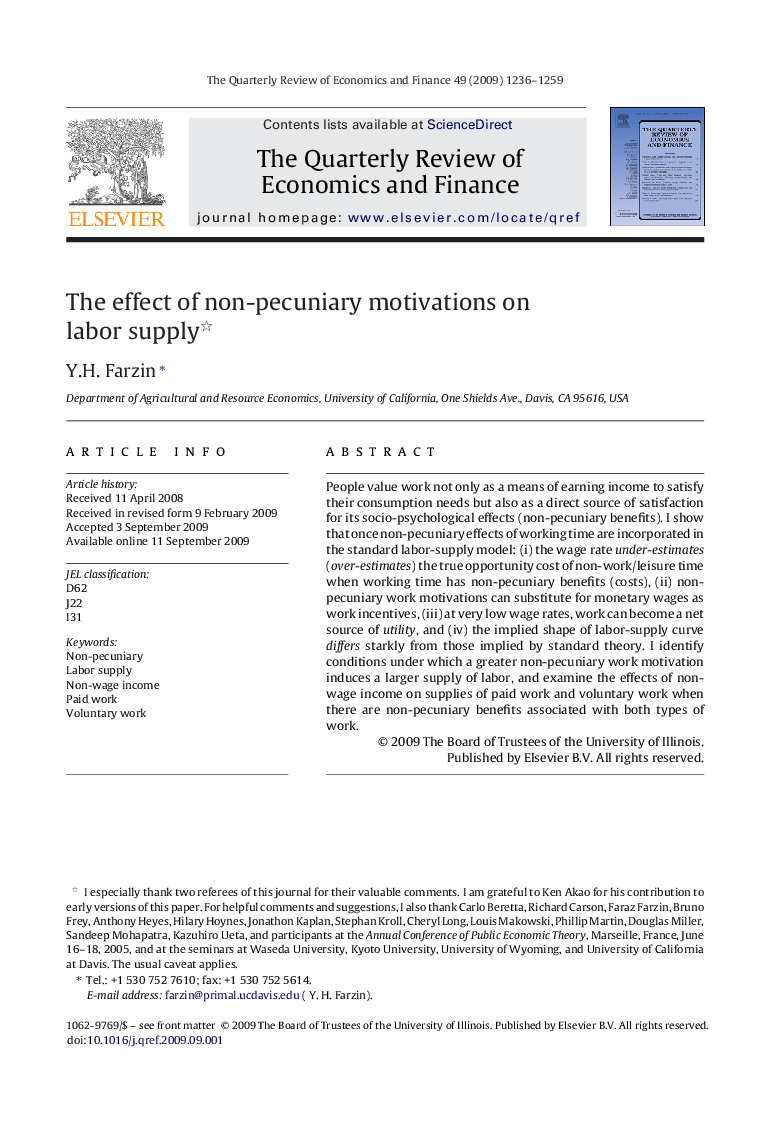| Article ID | Journal | Published Year | Pages | File Type |
|---|---|---|---|---|
| 983295 | The Quarterly Review of Economics and Finance | 2009 | 24 Pages |
People value work not only as a means of earning income to satisfy their consumption needs but also as a direct source of satisfaction for its socio-psychological effects (non-pecuniary benefits). I show that once non-pecuniary effects of working time are incorporated in the standard labor-supply model: (i) the wage rate under-estimates (over-estimates) the true opportunity cost of non-work/leisure time when working time has non-pecuniary benefits (costs), (ii) non-pecuniary work motivations can substitute for monetary wages as work incentives, (iii) at very low wage rates, work can become a net source of utility, and (iv) the implied shape of labor-supply curve differs starkly from those implied by standard theory. I identify conditions under which a greater non-pecuniary work motivation induces a larger supply of labor, and examine the effects of non-wage income on supplies of paid work and voluntary work when there are non-pecuniary benefits associated with both types of work.
